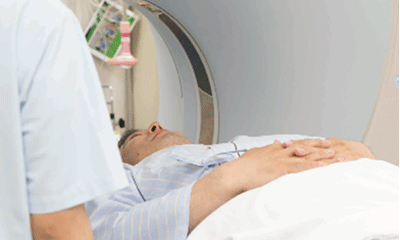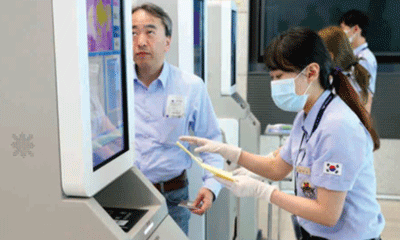Policies
Challenges & Tasks Ahead
Korea has spared no effort to tackle difficult challenges such as low fertility, rapidly ageing population, and ever increasing demand for social services, while proactively taking on huge tasks such as health promotion, healthcare industry growth, modernization of traditional Korean medicine and infectious disease prevention and control.
Overcoming the Demographic Crisis
Since 2006, the Ministry has been implementing overarching plans to tackle the demographic crisis. Thus far, we have introduced three five-year plans to address relevant issues. In 2017, addressing demographic challenges was chosen as one of the top policy priorities under President Moon Jae-in’s administration. The administration has shifted its focus to promoting the formation of happy families through people-centered policies, rather than relying heavily on raising birth rates.
The ultimate goal of the Ministry is to create a society where childbirth and parenting are associated with happiness. The goal is being translated into action, with the government taking larger responsibility for the childbearing process and parenthood, while improving housing and job conditions and promoting a healthy work-life balance. To further accelerate these efforts, the Presidential Committee on Ageing Society and Population Policy has increased the number of its civilian members and established a Secretariat. The reform has been carried out to ensure that the Committee provides innovative and practical solutions from the citizens’ perspective with a view to avoiding the looming “demographic cliff.”
Employment in the Social Service Sector
The Ministry plans to expand social infrastructure, such as nationally managed childcare centers, nursing homes, and healthcare facilities. We also plan to establish public social service organizations mandated to hire and train social service workers. The current social service delivery system will be improved to serve dementia and mental illness patients with local support and to protect abused children and senior citizens.
To ensure that social services provide all citizens with the support they need throughout life, we seek to expand welfare coverage for infants, children, and older persons. Expanded coverage for these various populations is expected to create jobs and particularly increase the quantity and quality of jobs in the social service sector, eventually enhancing the quality of life for our citizens.
Health Promotion
We support nation-wide health check-ups and vaccinations throughout an individual’s major life stages, while effectively connecting health and welfare services at the community level and further expanding mental health services. While taking this comprehensive approach to health, we plan to continuously increase our investment towards preventative healthcare.
Healthcare Industry

Korea has medical personnel with extensive clinical experience and meets world-class standards of digital technology. It is fostering talent in related areas, from medical scientists to precision medicine experts versed in AI and big data. In doing so, the country expects to boost the competitiveness of bio-health companies and expand the capacity for technological innovation. Significant efforts are being made to develop novel treatments and vaccines for COVID-19 and, further, to prepare against new infectious diseases.
As one of our policy priorities, we have chosen to promote the development of the pharmaceutical, biomedical, and medical device industries as core sectors of our economy.
The government recently announced a national plan to pave the way to becoming a global hub of bio- and digital health, so as to enhance the quality of medical services provided to citizens, and drive greater innovation in bio-health. The plan includes R&D investment, regulatory improvements, establishment of a global vaccine hub, and appropriate talent development processes in the pharmaceutical, medical equipment, and cosmetics industries. The government is investing in the development of new-generation technologies, such as regenerative technology and precision diagnosis technology for cancer, as well as safe and efficient utilization of medical big data.
Further R&D investments are underway to address a wide range of health-related social issues, including the vaccine development, diagnosis and treatment of dementia patients, and outbreak prevention. To that end, we plan to designate and develop research-driven hospitals and promote joint cooperation among business, academia, research, and medical communities. Additionally, we are creating an innovation-friendly ecosystem for the bio-health industry by facilitating the industry’s use of state-of-the-art medical complexes.

Traditional Korean Medicine
The Korean healthcare system consists of both western and traditional Korean medical practices. To become a doctor in traditional Korean medicine, one needs to first graduate from medical school with a degree in traditional Korean medicine, then pass a national license exam. Finally, once the student passes the exam, he or she will receive a certificate from the Minister of Health and Welfare, which allows the individual to practice traditional Korean medicine and provide medical advice in the public health area. Likewise, there is a Korean medicine pharmacist license system that permits the manufacture, prescription, appraisal, dispensation, storage, import, and sale of traditional Korean medicine.
We are implementing policies that encourage doctors of traditional Korean medicine to employ evidence-based research to transform the practice into a more “modern” medical field. The policies of lowering out-of-pocket payments and expanding health insurance coverage for our citizens are set to increase the accessibility of traditional Korean medicine.
Moving forward, the Ministry plans to strengthen quality management, enhance the existing distribution channels, and expand the research and development of traditional Korean medicines so as to increase the credibility of our traditional medical practice. Through standardization and scientific methodologies, we are taking further steps to raise the competitiveness of traditional Korean medicine at the global level.

Infectious Disease Preparedness and Response
In response to recent infectious disease outbreaks, the Ministry has an outbreak preparedness and response system that provides effective prevention and treatment of infectious diseases. The main purpose of the system is to save lives and protect public
health from the threats of any possible infectious disease outbreaks.
To prevent infectious diseases outside of Korea from entering our borders, we have identified seven contagious diseases, including cholera and Middle East Respiratory Syndrome (MERS), which require quarantine at ports of entry. Visitors and residents of contaminated zones are required to submit health questionnaires.
We have developed a list of 80 legally notifiable communicable diseases to monitor their current status and origin. We have an Emergency Operation Center that is operated on a 24/7 basis in order to rapidly respond to these diseases. When and where there is a reason to believe that there is an outbreak, an epidemiological investigation is immediately conducted, and the outbreak site is quarantined and isolated if spread of such disease is likely.
Treatment of infectious diseases are provided in most healthcare facilities. We operate negative pressure isolation chambers for respiratory or other highly infectious diseases. For more professional and effective isolation and treatment, the Ministry is in the process of building hospitals that specialize in infectious diseases and are equipped with approximately 150 beds, including high-tech negative pressure isolation beds. In preparation for contagious disease outbreaks and possible bioterrorism attacks involving 11 diseases, we currently hold reserve stocks of vaccines, medicines, and Personal Protective Equipment (PPE).